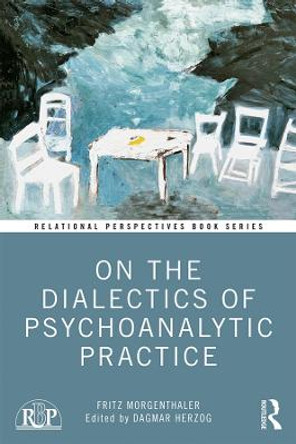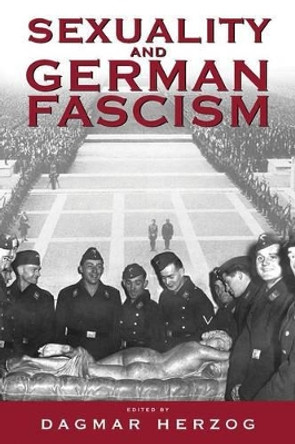Description
This book provides a panoramic history of psychoanalysis at its zenith, as human nature was rethought in the wake of war and the global transformations that followed.
About the Author
Dagmar Herzog is Distinguished Professor of History and Daniel Rose Faculty Scholar at the Graduate Center, City University of New York, and has published extensively on the histories of religion, gender and sexuality, and the history of the Holocaust and its aftermath. She is the author of four previous books, including Sex after Fascism: Memory and Morality in Twentieth-Century Germany (2005), and the editor or co-editor of six anthologies spanning issues of war, sexuality, religion and historical theory.
Reviews
'This is surely a history of the Cold War world as we did not know it, in which psychoanalytic conformists and rebels flex their way through the controversies of the era - Auschwitz, My Lai, student protests, postcolonial insurgencies, the culture of narcissism. Partly about the collapse of psychoanalysis in its bid to be the regulating body for Christian American normalcy, it is even more so the story of psychoanalysis resurgent and radical. Fiercely relevant.' Matt Ffytche, author of The Foundation of the Unconscious
'A fascinating and impeccably researched history of post-World War II psychoanalysis as a highly charged field of intellectual combat. Herzog shows how in complex and often surprising ways, the legacy of Freud configured debates over hetero- and homosexuality, politics, Nazism, PTSD, and even religion. Passionately argued and lucidly written, she has given us an account of psychoanalysis for the twenty-first century.' Anson Rabinbach, author of In the Shadow of Catastrophe
'In this brilliant book, Herzog explores the relationship between politics and psychoanalysis in the aftermath of World War Two. As she convincingly shows, psychoanalysts were deeply engaged with their contexts and they revised their theories to better understand how desire, violence, and power interacted. This will change the way we think not only about psychoanalysis but also about the Cold War.' Camille Robcis, author of The Law of Kinship
'In this illuminating work, Dagmar Herzog explores post-War psychoanalysis, rescuing often neglected or glibly marginalized figures and placing them firmly at the center of debates that took place in the sombre decades that followed the Holocaust over the nature of self, sexuality, cruelty, and political life. A ground-breaking study.' George Makari, author of Soul Machine and Revolution in Mind
'In her scintillating new book, Dagmar Herzog shows that in the years between World War Two and the 1960s, Freud almost replaced Marx as the cornerstone of radical thought. The result is a new way of thinking about the Cold War - and about our own time as well.' Eli Zaretsky, author of Political Freud
'Dagmar Herzog takes us on an illuminating tour through postwar landscapes of the mind, and into the fields of desire, pleasure, guilt, anxiety, and aggression. This is a finely measured and surprising survey, as well as a strong argument for exploring psychoanalytic ideas historically. Her book deserves a wide readership.' Daniel Pick, author of Psychoanalysis: A Very Short Introduction
'Against the backdrop of Nazis and the Holocaust, the sexual revolution, feminism, gay rights and anti-colonial and anti-war activism, Dagmar charts the heated battle over the late Austrian Jewish founder of psychoanalysis.' Jewish Telegraph
'Herzog shows with telling detail how the variety of psychoanalysis that was developed in the US after the second world war had little in common with Freud's initial project. ... Herzog brings fascinating documents to bear to show how US psychoanalysts formed alliances with Christian clergy who themselves wanted treatment. ... Like an anthropologist engaged in fieldwork, Herzog moves from site to site to give us a textured understanding of complex historical matter.' Lisa Appignanesi, The Guardian
'Herzog's account treats the Cold War less as a specific struggle between America and the USSR, and more as the setting for a broad range of political and cultural forces that swept up and transformed psychoanalysis.' Warren Breckman, New Republic
'This is a brilliant, ambitious, passionate book ... a scintillating and thought-provoking work of intellectual history, a rich, sophisticated, and exciting analysis of ideas in historical context. It is an important book and will be productive for Herzog's readers both for its empirical and for its theoretical contribution.' Edward Ross Dickinson, Journal of the History of Sexuality
'... Herzog succeeds in defending the Freudian tradition. Not, to be sure, as a single, commanding paradigm, as insiders like Kubie and Rangell once believed, but as a worthy interlocutor and critic of contemporary psychiatry, especially its view of mental health and personality 'as a matter mostly of chemical reactions and/or encoding in the genes'.' George Reisch, Metascience
'In this wonderfully researched and elegantly argued contribution to the history of psychoanalytic thought, Herzog ... offers an account of Freudianism in the decades following World War II that will alter the direction of much historicism pertaining to the upheavals in ideology and activism for which, for example, the decade of the 1960s is renowned. Herzog shows the struggles over key dimensions of Freudian thought as they unfold internationally, against the background of social movements such as feminism, anti-colonialism, and gay rights, paying attention to the impact of Nazism, the intractability of homophobia, and Oedipal authority. Particularly noteworthy is a chapter on post-traumatic stress disorder (PTSD) as its diagnosis, etiology, and treatment were shaped and unshaped in the aftermath of the 20th-century's greatest trauma, the Holocaust. The book provides new angles on key figures in Freudian and anti-Freudian philosophy, including Karen Horney, Karl Menninger, Herbert Marcu
'Herzog shows convincingly that without the pressures exerted by the world beyond the consulting room, psychoanalysis would have withered away in irrelevance. No one has shown more forcefully than Herzog that the recurrently staged 'mutual rescue operation[s] of psychoanalysis and politics' secured the discipline's future.' Elizabeth Lunbeck, Journal of Interdisciplinary History
Book Information
ISBN 9781107072398
Author Dagmar Herzog
Format Hardback
Page Count 320
Imprint Cambridge University Press
Publisher Cambridge University Press
Weight(grams) 640g
Dimensions(mm) 235mm * 160mm * 19mm






